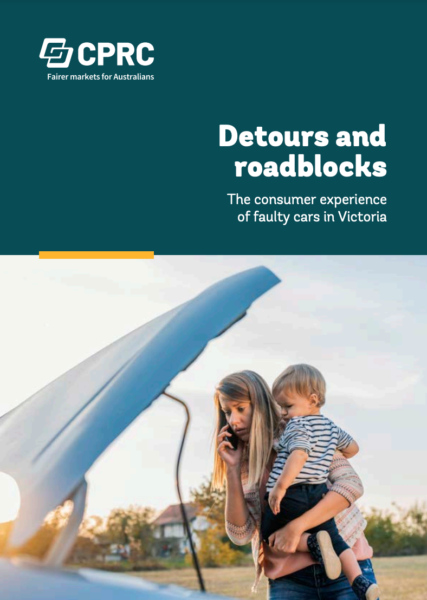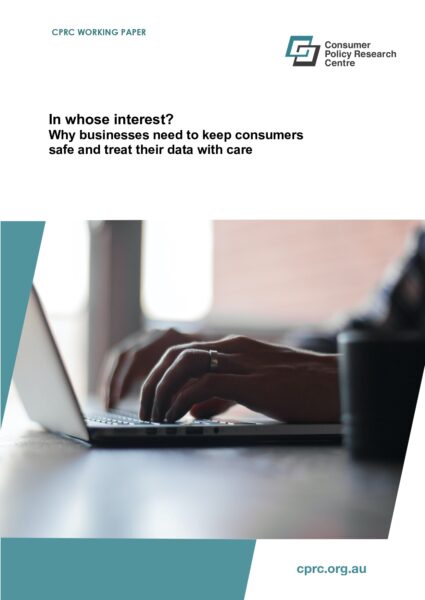June 29, 2022
Speaking directly with consumers provides a better understanding of their lives, what matters to them and the challenges they face. This report describes how Australians feel when confronted with challenges in markets or harm caused by businesses.
Speaking directly with consumers provides a better understanding of their lives, what matters to them and the challenges they face. This report describes how Australians feel when confronted with challenges in markets or harm caused by businesses.
Understanding what consumers consider to be essential should shape the way markets are regulated and strengthen how penalties and enforcement are applied to businesses that breach those regulations. In addition to energy, water and housing, overwhelmingly the people we spoke to consider phone and internet to be essential for their lives today. Together, they connect them with work, study, friends, family and are a gateway to other services such as banking and shopping.
I can’t live without the internet, which is very obvious. Without it I can’t do any work, research studies, shopping, banking. Everything.
-CALD, VIC
Consumers spoke of being spoilt for choice in some markets and things being better in many respects.
There’s never such a thing as not enough choice. The more choice the better.
-CALD supports a family member, NSW
But, competition comes with challenges. Many people told us how overwhelming it can be navigating markets and making choices when they didn’t necessarily understand the different characteristics used to separate plans, products or services they need to buy. This was particularly the case with essential services such as telecommunications and energy or with complex products like insurance. They told us how this impacts their time, their mental health and their lives.
Is this really worth my time and effort to keep searching through all this stuff? And half the time you don’t understand it anyway.
Over 50,
-Regional NSW
Many of the consumers we spoke with struggled to trust information from a business or doubted it would genuinely benefit them.
There’s a lot of small print that I get stumped on at that decision-making point.
Living comfortably,
-Melbourne
Many consumers want to make sustainable and ethical purchases but feel they are unable to identify which companies are genuine in their statements. They felt like many companies use green terms and ethical issues as marketing opportunities. While some felt they wanted to make more sustainable purchases, it wasn’t an option as they were outside their budget.
It’s all well and good to say, “be sustainable”, but it’s bloody expensive.
Struggled to pay a bill,
-Melbourne or Sydney
The people we spoke to were aware of the “loyalty penalty” and felt it was unjust and unfair to force them through their behaviour and activity to drive prices down.
There’s no brand-loyalty with anything really these days, especially like when you’ve been a long-term customer… 20 years ago, brands used to reward customer loyalty quite frequently, and you’d get discounts and stuff based on how long you’d stayed… Bottom line, it’s not much and all the money and all the advertising is all in attracting new customers rather than retaining old customers.
-Renters, under 50, SA
The people we spoke with described lengthy waits to speak with the provider, needing to speak to multiple agents to resolve an issue or get the right information. They felt like companies were making it more difficult to contact a business and felt pushed to use online forms and chatbots.
When the provider wants to get a hold of you, it’s instant. But when it’s the reverse, it’s impossible. I was left on hold for five hours and I’m no longer a customer.
-Over 50, QLD
Effective internal dispute resolution systems and access to free and quick external dispute resolution bodies are essential to securing fair outcomes for consumers. Many consumers we spoke with said they would not continue to seek a refund or challenge a fee if resolution was too costly or complex to pursue.
I forgot to pay my Optus mobile plan. The late fee was $30 which I thought was unreasonable – but if it costs too much to complain, in time or money, I won’t do it. I resolved this by switching to Telstra once the plan was up.
-Person with a disability, QLD
Australians are facing sustained cost of living pressures; at the same time, they are engaging in increasingly complex markets with a requirement to shop around to get a good deal. The people we spoke with are aware of how unfair their relationship is with businesses – they want businesses to be fairer and kinder.
I want to feel that personal connection. It’s nice when someone actually listens and isn’t just trying to sell you something.
-Under 50, WA
Insights from this report should inform how policy makers design policies and regulations and how businesses structure their customer service and design their online presence.

October 31, 2023
Faulty cars are far too common and disrupt too many lives. This report delves deep into the repercussions of faulty cars on individuals' lives, examines the legal pathways available for those seeking remedies and explores the experience of First Nations people.

March 16, 2023
Australia’s privacy laws rely on notification and consent as the primary means of protecting consumers. The onus is on consumers to navigate complex privacy protections in a continuously complex digital economy. It is time to consider reforms that hold businesses accountable for how they collect, share and use consumer data. It is time to give regulators the power to pause and assess data practices that are causing or likely to cause consumer harm.